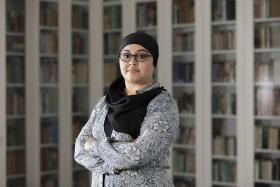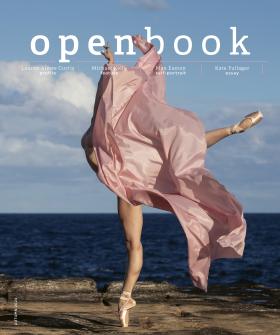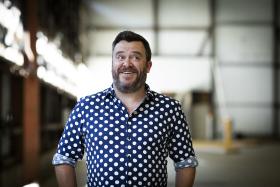When Radhiah Chowdhury set out to investigate the current state of the Australian publishing landscape, she did not expect it to change so dramatically. As the recipient of the prestigious Beatrice Davis Editorial Fellowship, Chowdhury was due to travel to the United Kingdom to garner what lessons in diverse and inclusive publishing we might have to learn from our industry big brother.
But, as she says, ‘There are plans, and then there’s a global pandemic.’
As 2020 unfolded, we saw a steady stream of doom and gloom narratives emerging from the Australian publishing industry — stories cataloguing battling Aussie bookshops, cancelled writers’ festivals and launch-less debut authors. This news came off the back of longer-term narratives around falling sales, dwindling arts funding, declining author incomes and — a festival favourite — the very future of the book itself.
Unperturbed, Chowdhury did what many of us were called on to do and turned to video calls, connecting with BAME (Black, Asian and Minority Ethnic) professionals from across the British publishing spectrum. As her conversations were underway, George Floyd was murdered by police in Minneapolis reigniting the Black Lives Matter movement across the globe.
‘Suddenly,’ she writes, ‘the calls for representative publishing, for decolonising the white, middle-class industry that is Western publishing ... moved to the very forefront of how we as a global industry think of publishing today. And just as suddenly, the conversations I had been privileged to be a part of became more poignant, more urgent, and more desperately needed than ever before.’

‘If anything, 2020 reinforced something that a lot of us in the industry would recognise, which is the importance of books and the value they bring — whether for education or for entertainment or for escape,’ says James Kellow, Managing Director of newly established publishing house Ultimo Press. ‘Books really fulfilled an important role and, in many respects, that’s a great platform to start a new business.’
Launched in September 2020, Ultimo Press emerged just as new sales data began to tell a different — and surprisingly optimistic — story. Popular online retailer Booktopia declared a staggering 506% increase in its earnings for the six months to the end of December, and bookstores across the country were reportedly gearing up for their ‘best Christmas ever’.
To step into Ultimo Press’ offices in the hip, industrial inner-Sydney suburb from which it takes its name is to shrug off any preconception of the struggling publishing house. With its fresh design aesthetic and publishing catalogues that look and feel like limited-edition art prints, the press has all the swagger of the new kid on the block.
However, the choice to launch Ultimo Press was not solely an economically opportunistic one. Backed by Melbourne-based publishers, Hardie Grant, the company saw potential for a new independent press to respond to the current cultural moment.
‘There’s obviously a lot of talk about diversity and new perspectives and fresh ways of thinking — and that’s a role that independent publishers particularly provide in the Australian marketplace,’ Kellow says. ‘So it felt really relevant to be setting up a publishing house with a particular focus on stories and storytelling that was coming from a different perspective, was prepared to take a few more risks, and give a platform to authors in a way that’s slightly different to the experience you might get in the bigger houses.’
But while Ultimo Press may pit itself as the younger, more agile David against the larger, more sluggish publishing Goliath, CEO of Hachette Australia, Louise Sherwin-Stark, is eager to show that larger commercial Australian publishing houses are also responding to the clarion call of the present moment. ‘Last year saw change on every single front,’ she says, adding that a focus on acquiring and publishing more inclusively has become a key driver for the company.
This journey was initiated well before 2020, she says, by two publishers: Robert Watkins — who has since, in the spirit of healthy inter-publisher competition, been poached by Ultimo Press — and Vanessa Radnidge. ‘We didn’t really have a defined strategy at that point, but we could see the commercial potential of these books, and we could see the importance of publishing books that spoke to all Australian readers.’
Early successes for the company included titles such as Maxine Beneba Clarke’s memoir The Hate Race, Michael Mohammed Ahmad’s debut novel The Lebs and Claire G Coleman’s speculative novel Terra Nullius — all of which were eagerly embraced by Australian booksellers and readers, scored listings for some of the country’s most esteemed literary awards, and saw their authors rapidly signed up for follow-up books. Indeed, Beneba Clarke released her new book for children When We Say Black Lives Matter at the end of 2020, Ahmad’s new novel The Other Half of You was published in May, and Coleman’s personal reflection on colonialism Lies, Damned Lies is due out in September.
Hachette has since adopted a series of more formal internal strategies, including Hachette UK’s ‘Changing the Story’ program of training and community outreach initiatives, as well as establishing a series of external partnerships, such as with the State Library of Queensland’s black&write! writing fellowships and, more recently, with Future Women.
When I speak to Sherwin-Stark on a Friday afternoon, she’s just stepped out of a digital ‘Inside the Publishing House’ event hosted in collaboration with the Emerging Writers’ Festival, and is about to step into an online pitching session direct with 50 unpublished and unagented authors.
‘It’s really important to acquire outside the normal acquisition process,’ she says. ‘I think agents have assumptions about what publishers are looking for, and publishers have assumptions based on what sold previously through booksellers, and it’s by breaking down those traditional pathways that you’re going to find more unique and interesting stories.’
But the company isn’t the only major publisher to have made assertive changes to the way they publish and acquire books. Last August, long-standing independent Australian publisher Allen & Unwin took a different route to tackling the issue of diversity in their publishing model when it announced its new imprint JOAN. Helmed by Gamillaroi/Torres Strait Islander writer, actor and director Nakkiah Lui and named after Lui’s maternal grandmother, JOAN seeks to ‘create space for the voices that get pushed to the fringes’. The imprint will commission titles across all genres and we can expect to see the first titles announced this year.
‘The value of Nakkiah joining Allen & Unwin is manifold,’ says publisher Kelly Fagan, who was involved in kickstarting the initiative in-house. ‘Not only does she bring her network, her reputation, her imagination and her artistic lens, but the creation of her imprint, JOAN, is a chance for Allen & Unwin to explore new ways of publishing —new ways of doing publishing, new ways of thinking through the business of publishing, new ways of interrogating what publishing is, in Australia today and beyond.’

While such statements seem to paint a boldly hopeful vision of an industry looking forward to the future while redressing the failures of the past, Chowdhury believes the sector still has a long way to go. Having spent the better part of last year compiling and submitting her Fellowship research, she shares her observations with me.
‘The increased access to publication for authors of colour is good to see, as well as their increased representation among some — though not all — of the local and international literary awards,’ Chowdhury says. ‘But from the publisher side, to be frank, I don’t think there’s justification for any celebration. Publishers need to be diversifying their workforce at least the same rate as they are acquiring diverse authors. Otherwise, these works and authors are publishing into a vacuum and their longevity in the market isn’t sustainable.’
A commissioning editor and senior audio producer at Penguin Random House Australia by day, Chowdhury is informed, incisive and unapologetic in her observations about the industry she has worked in — and struggled against — for almost a decade, but also not without a certain rebellious sense of humour (feedback on her report, for instance, should be directed to beatrice.davis.goes.brown@gmail.com).
If meaningful and sustainable change is to be achieved, Chowdhury says, the industry must look beyond ‘a few token PR moves’, and begin the hard work of enacting a deep, systemic overhaul — starting at the top.
‘There’s no shortage of FNPOC [First Nations and People of Colour] who are keen to enter the industry, but so few of us manage to stick around, let alone climb the very slow (almost non-existent) ladder of career progression. We need a top-down approach — more senior FNPOC staff scaffold a subsequent intake of junior staff because they have mentors and advocates in a company, and somewhere to aspire to. More FNPOC staff in general alleviates the burden of representation on one or two people, and addresses the white cultural bias of a company.’
This ‘burden of representation’ was a recurring feature of many of the interviews and conversations Chowdhury conducted with industry friends and colleagues, both in Australia and abroad, and was a motivating factor in the creation, last November, of the FNPOC in Publishing Network. Devised and launched in collaboration with black&write! editor Grace Lucas-Pennington and freelance editor Camha Pham, the network is a place for FNPOC professionals to ‘connect, gather and support each other’.
‘We’re stronger together,’ Chowdhury says, ‘and in a space completely safeguarded from the white gaze, we can whole-heartedly support one another by honestly sharing our experiences in various contexts and companies without needing to police our tone or fearing reprisal.’
Asked to highlight where she saw positive change being led in the Australian sector, Chowdhury returned to programs such as the State Library of Queensland’s black&write! Fellowship and the work of Broome-based publishing house Magabala Books as ‘brilliant examples of initiatives that are built by the community they represent, for the community they represent’.
For CEO of Magabala Books, Anna Moulton, such small, community-based publishers provide a vital space in the Australian publishing ecosystem.
‘More than 34 years ago, our founding Elders — some of whom experienced first contact — understood the power of the written word and saw the opportunity to take back control of their stories by establishing an Aboriginal-owned and led publishing house. We have always felt strongly that Magabala is, and must remain, a place where Aboriginal and Torres Strait Islander people can stand in their own truths.’
The positive results of this model have been evident in the enormous commercial success and cultural impact of books such as Dark Emu by Bruce Pascoe, alongside critically acclaimed poetical works by Alison Whittaker, Kirli Saunders and Ali Cobby Eckermann, and a thriving children’s books list. But Moulton sees Magabala’s work as extending beyond their publishing output. ‘A lot of our initiatives focus on development and opportunity,’ she explains. ‘We are proud of our role as incubator and springboard.’
This year, for instance, the publisher will open applications for its first ever Indigenous Publishing Cadetship, which seeks to provide employment pathways for Aboriginal and Torres Strait Islander people in the industry, and recently launched a new mid-career Fellowship for Aboriginal and Torres Strait Islander writers.
Asked to cast her eye out over to the broader publishing landscape in Australia, Moulton observes: ‘This is an exciting moment for diverse voices. A different literary landscape suddenly seems possible in this country. It is a moment we have long worked towards and we hope is sustained.’
But though she is hopeful about the industry’s willingness to adapt and change, like Chowdhury, she also remains cautious. ‘Given the current pace of the shift and the nature of the market, however, we remain somewhat wary. Our publisher Rachel Bin Salleh talks about ethical publishing as “slow cooked publishing” and we are particularly conscious that market demand can create pressure to turn books around quickly, and this can be to the detriment of the author and their community ...’
We saw the consequences of rushing such work earlier this year in the announcement of the Ultimo Prize. Open to writers under 30, it asked writers to reflect on the theme of ‘identity’. However, as members of the online literary community were quick to argue, while the prize called on young, diverse writers to reflect on their selfhood, the judges reviewing this work — namely staff of Ultimo Press itself — lacked the necessary cultural and linguistic diversity to sensitively handle and assess such material.
‘I regret that we were probably moving too quickly,’ Kellow admits. ‘We wanted to get certain things in train and, clearly, we weren’t as careful as we should have been. Of course, it was disappointing, because we had the right intent. But we got it wrong and so we made an effort to move very quickly to address that.’
While admitting such mistakes is uncomfortable — particularly for a new press still trying to establish its sense of identity — Chowdhury argues that discomfort is a necessary part of the process.
‘I acknowledge and empathise with the fact that meaningful change comes with several bucketloads of discomfort,’ she says. ‘How do you get people to accept, let alone welcome, discomfort? At worst, the conversation stalls out at defensive dismissal, but even at best, it seems to linger in the realm of an intellectual argument. But this is not an intellectual curiosity. We’re literally talking about the personhood of whole swathes of the communities we live in.’
Kellow is quick to agree. Rather than shying away from criticism and difficult conversations, he says it is the responsibility of publishers to lean into this discourse. ‘I think publishers always need to be listening and paying attention to the conversations going on around them. If your job as a publisher is to be representative of your country and its cultures then you have to be looking everywhere, listening everywhere.’

‘There is much work to be done,’ Moulton says, ‘but there are so many amazing people making inroads. Now is the time for deep listening, humility and courage to make change happen.’
Rebecca Slater is a freelance writer and literary/arts professional.
Terra Nullius can be purchased at the Library Shop.
This story appears in Openbook winter 2021.




